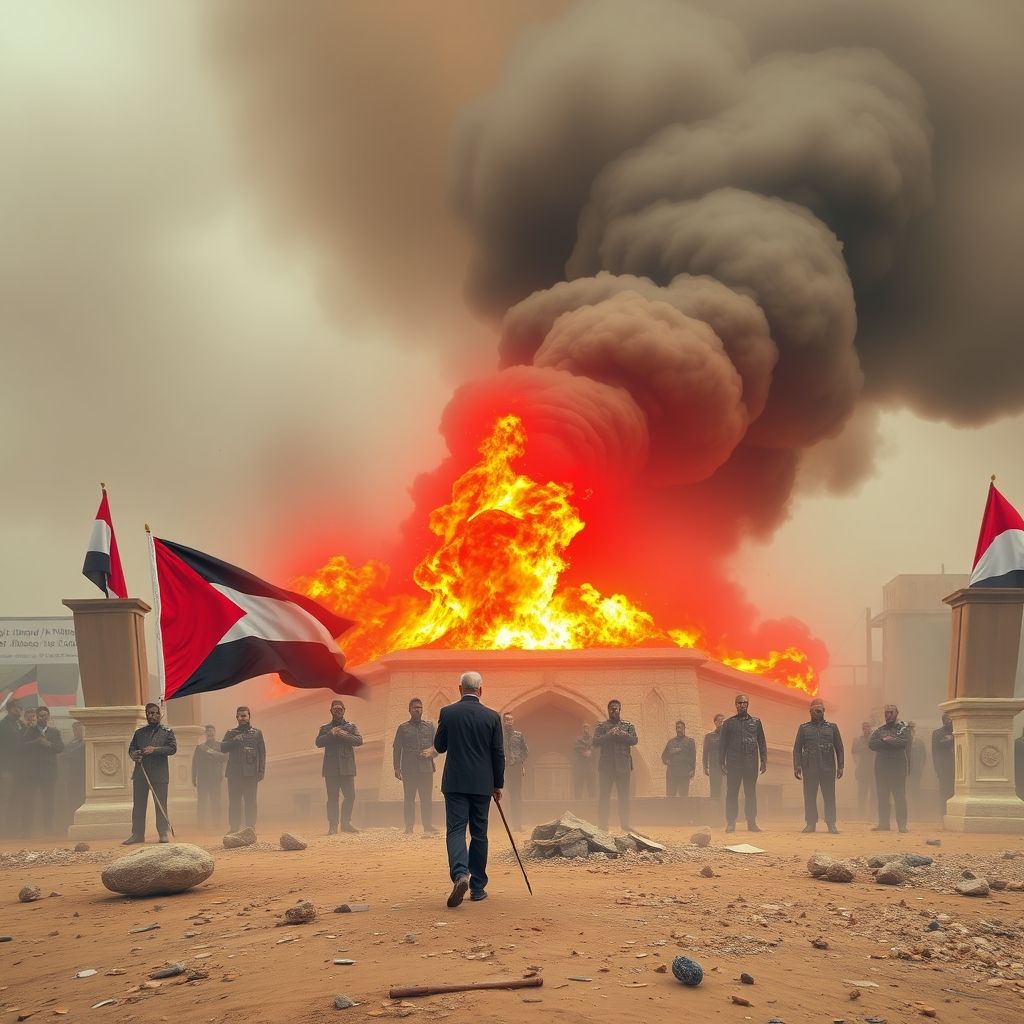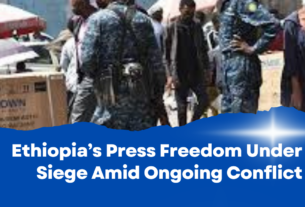Gaza/Israel – Amid a spiraling humanitarian disaster and mounting global condemnation, Israeli Prime Minister Benjamin Netanyahu declared Monday that Israel will “take control of all the territory of the strip,” signaling a dramatic escalation in its military campaign against Hamas and a potential redrawing of Gaza’s future.
As the Israeli military intensified its bombardment and expanded ground operations across the Gaza Strip, rescue workers reported more than 50 Palestinian deaths in just one day. The intensified campaign follows months of siege that have left Gaza’s 2.3 million residents grappling with starvation, collapsing health infrastructure, and unrelenting violence.
“We Will Not Stop”
In a statement posted to Telegram, Netanyahu said, “The fighting is intense and we are making progress. We will take control of all the territory of the strip.” His remarks signal not just a military strategy, but a broader political stance, one that appears to ignore mounting calls from the international community for restraint, and that critics say paves the way for a permanent occupation.
The move comes as part of what Netanyahu described as a necessary step for both “practical and diplomatic reasons,” even as his own far-right cabinet remains divided on the resumption of limited aid deliveries into Gaza.
Aid Amid Apocalypse
Under growing pressure from international allies and human rights groups, Israel allowed a small convoy of aid trucks carrying baby food into Gaza via the Kerem Shalom crossing, the first such entry since early March. The United Nations welcomed the development but warned that five trucks of supplies fall devastatingly short of what is required to avert a famine.
“Two million people are starving,” said the World Health Organization, which called the situation in Gaza “catastrophic.” WHO chief Tedros Adhanom Ghebreyesus accused Israel of “deliberately withholding humanitarian aid,” warning that famine was no longer a threat but a growing reality.
Footage from southern Gaza showed scenes of desperation and horror. In Khan Yunis, residents described gunfire erupting from apartment buildings, fire belts lighting up the skies, and children bleeding on hospital floors.
“This place felt like the apocalypse,” said Khan Yunis resident Mohammed Sarhan.
Strategic Siege or Ethnic Cleansing?
The UN’s human rights office issued a blistering condemnation of Israel’s intensified campaign, calling its actions “in defiance of international law and tantamount to ethnic cleansing.” It cited the methodical destruction of neighborhoods, forced displacement, and the denial of aid as potential war crimes.
Yet Netanyahu defended the campaign as necessary to destroy Hamas’s military capacity and regain control of an area that he claims poses a persistent threat to Israeli security. “To succeed, we must act in a way that cannot be stopped,” he said.
Far-right cabinet members, including National Security Minister Itamar Ben Gvir, opposed even limited humanitarian relief. “Our hostages receive no aid,” he posted on X. Finance Minister Bezalel Smotrich reluctantly supported the aid, arguing that “this will allow civilians to eat and our friends in the world to keep giving us diplomatic protection.”
The War’s Toll and a Region on Edge
Since Israel resumed heavy operations in March, Gaza’s Health Ministry reports that over 3,300 people have been killed, bringing the total death toll in the war to more than 53,000. The October 7, 2023, Hamas-led assault that triggered the conflict left 1,218 Israelis dead and 251 hostages taken, of whom 57 remain in Gaza 34 of them confirmed dead.
With Israeli forces striking over 160 targets in a single day and encircling major urban areas, the specter of a long-term occupation looms large. Military officials say the aim is to “get the civilian population out of the way” before targeting Hamas fighters but critics say this approach effectively turns densely populated areas into death traps.
International observers now fear a wider regional fallout. Aid agencies warn that the continuation of this policy of overwhelming force coupled with minimal humanitarian access could plunge Gaza into an irrecoverable humanitarian abyss and isolate Israel diplomatically, even among its Western allies.
A Future in the Balance
As Netanyahu doubles down on his promise to seize full control of Gaza, the question of what comes next remains dangerously unanswered. Without a political roadmap or international consensus, Israel risks trading short-term military gains for long-term instability.
“This isn’t just a war against Hamas anymore,” said a European diplomat on condition of anonymity. “This is a battle for Gaza’s future and the world is watching to see whether it will be ruled by hope or by force.”
Whether Netanyahu’s bold proclamation marks a decisive turning point or a catastrophic miscalculation may depend not just on Israel’s military prowess, but on its willingness to address the human cost of war now measured not only in lives lost, but in futures erased.




